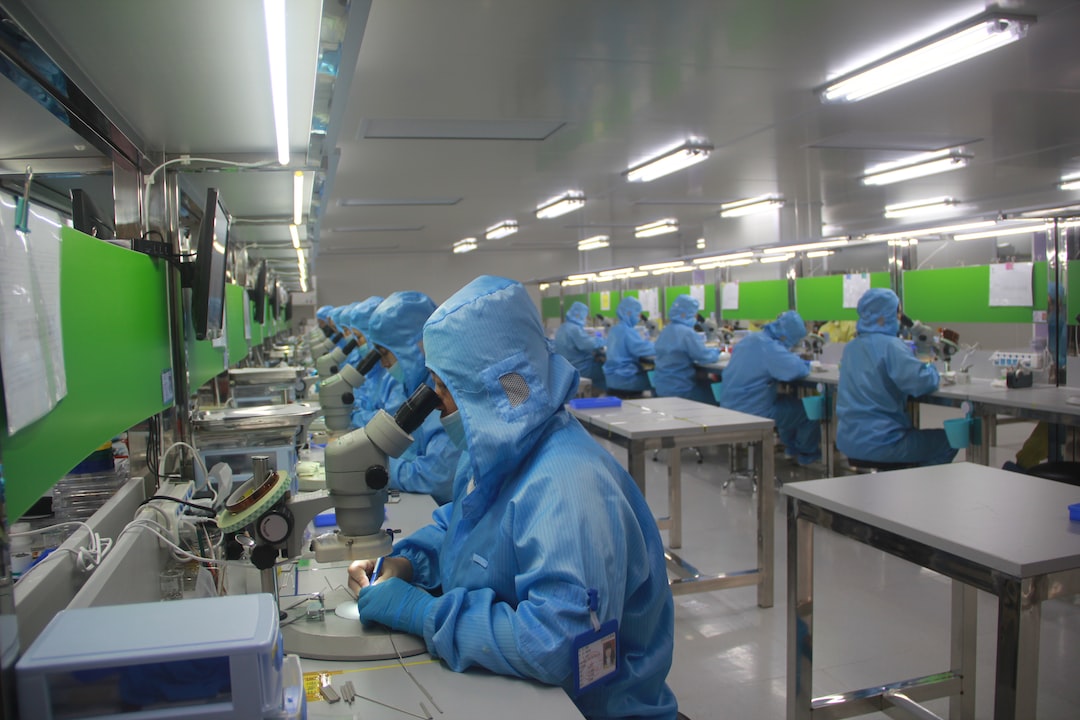Green Manufacturing: Sustainable Materials and Practices for a Cleaner Tomorrow
In recent years, the concept of sustainability has gained significant traction across various industries. From renewable energy to eco-friendly packaging, businesses are increasingly recognizing the need to adopt more environmentally conscious practices. One sector that has particularly embraced this movement is manufacturing. Green manufacturing, also known as sustainable manufacturing, focuses on minimizing the negative impact of industrial processes on the environment. In this blog post, we will explore the significance of sustainable materials and practices in manufacturing and their role in creating a cleaner tomorrow.
Sustainable materials play a crucial role in green manufacturing. Traditional manufacturing processes heavily rely on non-renewable resources such as fossil fuels and minerals, contributing to environmental degradation. In contrast, sustainable materials prioritize the use of renewable resources that can be replenished over time. For example, bamboo, a fast-growing grass, has gained popularity as an alternative to timber. Its rapid regrowth rate and strong mechanical properties make it an excellent choice for construction materials. By incorporating sustainable materials into manufacturing processes, we can reduce the depletion of natural resources, conserve energy, and decrease carbon emissions.
One of the significant challenges in green manufacturing is the reduction of waste generated during the production process. Traditional manufacturing practices often generate substantial amounts of waste, which end up in landfills or pollute water bodies. Green manufacturing, on the other hand, focuses on adopting practices that minimize waste generation and promote recycling. For instance, lean manufacturing techniques aim to streamline production processes, minimizing material waste and optimizing efficiency. Additionally, implementing closed-loop systems allows manufacturers to extract valuable materials from waste products, reducing the need for additional resource extraction and minimizing environmental impact.
Another aspect of sustainable manufacturing is reducing energy consumption. Conventional manufacturing processes are energy-intensive, relying heavily on fossil fuels for power generation. Transitioning to renewable energy sources, such as solar or wind, can significantly reduce carbon emissions associated with manufacturing operations. Furthermore, energy-efficient technologies, such as LED lighting and advanced heating and cooling systems, can help minimize energy consumption. By utilizing these practices, manufacturers can reduce their carbon footprint, operating costs, and reliance on non-renewable energy sources.
Implementing sustainable practices in manufacturing goes beyond materials and energy consumption. It also involves evaluating the social and ethical impact of production processes. Sustainable manufacturing aims to ensure fair labor practices, workers’ safety, and respect for human rights. Manufacturers can achieve this by adhering to certifications and standards that promote responsible manufacturing, such as ISO 14001 (Environmental Management System) and SA8000 (Social Accountability International). These certifications provide guidelines for companies to create a safe working environment, treat workers fairly, and reduce their impact on the local community.
Additionally, green manufacturing can foster innovation and creativity in product development. The need to find sustainable alternatives to traditional materials and practices drives researchers and engineers to explore new possibilities. This not only benefits the environment but also presents opportunities for businesses to develop unique and competitive products. By adopting sustainable practices, manufacturers can differentiate themselves in the market, attract environmentally conscious consumers, and also contribute to the growing demand for green products.
In conclusion, green manufacturing plays a vital role in creating a cleaner tomorrow. By incorporating sustainable materials, minimizing waste, reducing energy consumption, and ensuring ethical practices, manufacturers can significantly reduce their environmental impact. Embracing sustainable manufacturing not only benefits the planet but also presents new possibilities for innovation, economic growth, and social responsibility. As consumers become increasingly conscious of the environmental impact of their choices, businesses that prioritize sustainable practices will be at the forefront of the market, leading the way towards a more sustainable and greener future.

